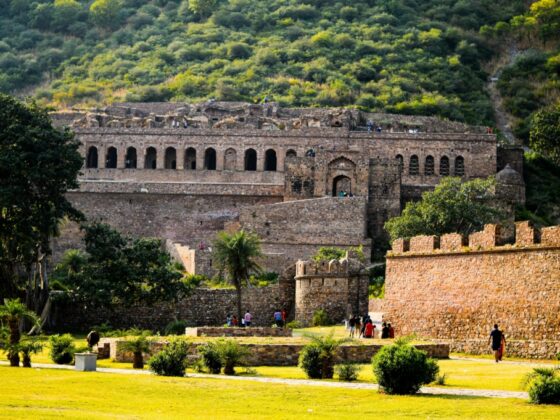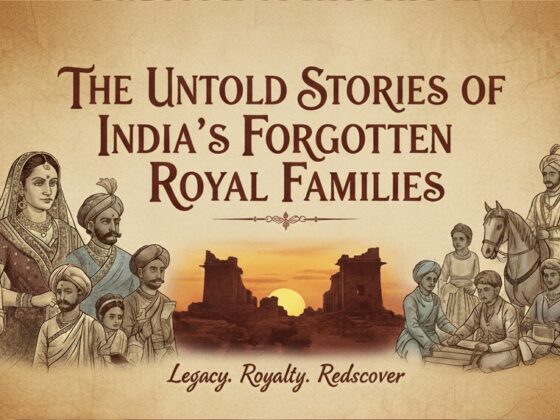Nawab Wajid Ali Shah: The Last King of Awadh

Introduction
Nawab Wajid Ali Shah, the last ruler of the Kingdom of Awadh, was a monarch known more for his cultural and artistic contributions than for his military or administrative acumen. Born in 1822, he ascended the throne in 1847 and ruled until 1856, when the British annexed Awadh under the pretext of misgovernance. Despite his political downfall, Wajid Ali Shah left an indelible mark on India’s cultural landscape, influencing literature, music, and dance in ways that continue to resonate today.
Early Life and Ascension to the Throne
Wajid Ali Shah was born on July 30, 1822, into the royal family of Awadh. His father, Amjad Ali Shah, was the ruler before him. Unlike many monarchs of his time, Wajid Ali Shah was more interested in poetry, music, and dance rather than military affairs. When he ascended the throne in 1847, he inherited a prosperous kingdom but one that was under increasing scrutiny from the British East India Company.
Cultural Contributions and Patronage
One of the most defining aspects of Nawab Wajid Ali Shah’s reign was his passion for the arts. He was a prolific poet and playwright, writing under the pen name “Akhtar.” His literary contributions include several poetic works and dramas, some of which are still celebrated in Awadhi culture today.
Patron of Kathak Dance
Wajid Ali Shah is credited with transforming Kathak from a temple dance form into a sophisticated court performance. His deep patronage of the dance led to the refinement of techniques, costumes, and storytelling aspects, laying the foundation for modern Kathak.
Musical Legacy
As a composer and singer, he enriched Hindustani classical music. He introduced several ragas, including Jogi, Juhi, and Shah Pasand. His compositions remain a cherished part of India’s classical music heritage.
Dramatic and Theatrical Innovations
He pioneered the concept of Rahas, a form of musical drama that later inspired the modern-day theater of North India. His elaborate plays, filled with grandeur and emotion, were precursors to contemporary musical performances.
The Annexation of Awadh
Despite his immense cultural contributions, Wajid Ali Shah’s rule was marked by political turbulence. The British East India Company had long sought control over Awadh, and in 1856, under Lord Dalhousie’s Doctrine of Lapse, the British annexed the kingdom, citing misgovernance.
Rather than resist militarily, Wajid Ali Shah chose to appeal diplomatically. He traveled to Calcutta (now Kolkata) to plead his case before the British authorities, but his efforts were in vain. The annexation led to widespread discontent and later became one of the catalysts for the Revolt of 1857.
Exile in Metiabruz
Following the annexation, Wajid Ali Shah was exiled to Metiabruz, near Kolkata, where he spent the rest of his life. Even in exile, he continued his patronage of the arts, creating a miniature version of his court and keeping Awadhi traditions alive.
Legacy in Kolkata
- He introduced Awadhi cuisine to Bengal, including the famous dum pukht and biryani, which later evolved into the distinct Kolkata-style biryani.
- His literary and artistic contributions flourished, and he continued to write poetry and compose music.
- He built Sibtainabad Imambara, where he was later buried, a symbol of his continued love for Awadhi culture.
The Lasting Influence of Wajid Ali Shah
Despite being deposed, Wajid Ali Shah’s impact on Indian culture remains profound:
- Kathak Dance Evolution: His contributions helped elevate Kathak to the global stage.
- Hindustani Classical Music: His compositions are still revered by musicians today.
- Culinary Influence: His influence on biryani and Mughlai cuisine continues to be enjoyed across India and beyond.
- Poetry and Drama: His literary works are still studied in Urdu and Hindi literature.
Conclusion
Nawab Wajid Ali Shah may have lost his kingdom, but he left behind a legacy that transcends political rule. His passion for art, music, dance, and poetry made him a beloved figure in Indian cultural history. Today, his name is synonymous with the golden age of Awadhi culture, and his contributions continue to be celebrated in various forms. Though he was the last king of Awadh, his influence endures, proving that true legacy lies not in power but in art and culture.








